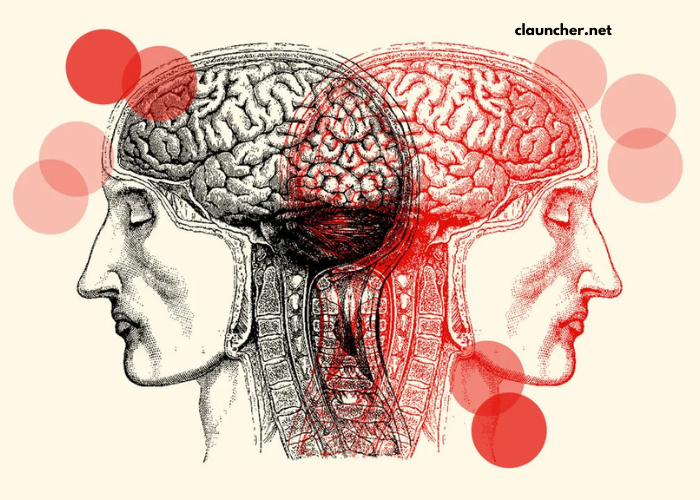Mental Health Awareness: Strategies for Wellness

In the modern world, mental health has emerged as one of the most critical topics of discussion. As we navigate through the complexities of daily life, stress, uncertainty, and emotional challenges, it has become increasingly evident that promoting mental well-being is just as essential as physical health. The significance of mental health awareness cannot be overstated. Understanding the impact of mental health, recognizing its importance, and knowing how to improve and maintain mental wellness are pivotal for leading a fulfilling life.
In this article, we will delve into the importance of mental health awareness, explore strategies for improving mental wellness, and discuss the benefits of maintaining mental well-being.
Understanding Mental Health Awareness
Mental health awareness refers to the recognition of mental health issues and their impact on individuals, families, and communities. It involves not only understanding various mental health conditions, such as depression, anxiety, and stress, but also acknowledging the importance of mental well-being and seeking solutions to address mental health problems.
Raising awareness about mental health can reduce stigma, encourage individuals to seek help, and promote healthy coping mechanisms. It is crucial to normalize conversations about mental health and make support systems more accessible to those who need them.
The Importance of Mental Health Awareness
The importance of mental health awareness cannot be stressed enough. With mental health disorders becoming more prevalent worldwide, the need for open dialogue and education has never been greater. According to the World Health Organization (WHO), approximately one in four people will experience mental health issues at some point in their lives. This highlights the necessity of providing adequate support and resources for those struggling with mental health challenges.
By improving mental health awareness, we can:
- Break down the stigma: Mental health conditions often carry a significant stigma, which may discourage individuals from seeking help. Awareness campaigns and education help to combat misconceptions and negative stereotypes associated with mental health.
- Encourage early intervention: When mental health issues are recognized early, it becomes easier to address them effectively. People who are aware of the signs of mental health challenges can intervene before the issue worsens.
- Promote self-care: Mental health awareness empowers individuals to prioritize self-care and adopt proactive strategies for maintaining mental wellness. This can include stress management techniques, physical activity, and seeking support when needed.
Strategies for Promoting Mental Wellness
Promoting mental wellness is crucial for fostering a healthy and productive life. Several strategies can help individuals maintain good mental health and improve their overall well-being.
1. Practice Regular Physical Activity
Exercise is one of the most effective ways to improve mental health. Research has shown that physical activity helps reduce symptoms of depression, anxiety, and stress. Exercise promotes the release of endorphins, often referred to as “feel-good” hormones, which improve mood and alleviate feelings of sadness.
Benefits of Physical Activity for Mental Health:
- Reduces symptoms of depression and anxiety: Engaging in regular physical activity helps manage symptoms of mental health conditions by stimulating brain chemicals that improve mood.
- Boosts self-esteem: Physical activity improves body image and overall self-esteem, leading to better mental well-being.
- Promotes better sleep: Regular exercise helps regulate sleep patterns, which can be especially beneficial for individuals struggling with insomnia or sleep disturbances caused by mental health issues.
2. Adopt Healthy Eating Habits
Nutrition plays a significant role in mental health. A well-balanced diet rich in nutrients supports brain function, energy levels, and emotional stability. Foods that contain omega-3 fatty acids, antioxidants, and vitamins can boost cognitive function and reduce symptoms of depression.
Key Nutrients for Mental Health:
- Omega-3 fatty acids: Found in fish like salmon, omega-3 fatty acids support brain health and are associated with a reduced risk of depression.
- Antioxidants: Foods such as berries, nuts, and leafy greens contain antioxidants that help reduce oxidative stress, which can affect brain function and contribute to mental health conditions.
- B vitamins: B vitamins, particularly B6, B12, and folic acid, support brain function and help regulate mood.
3. Build Strong Social Connections
Human connection is essential for mental well-being. Strong social ties provide emotional support, a sense of belonging, and a network for navigating life’s challenges. Studies have shown that social isolation and loneliness can negatively impact mental health, leading to feelings of depression and anxiety.
Ways to Strengthen Social Connections:
- Engage in social activities: Whether through hobbies, sports, or community events, regularly participating in social activities can foster relationships and create a sense of community.
- Reach out to friends and family: Stay in touch with loved ones and seek support when needed. Talking to someone you trust can provide comfort and reduce feelings of loneliness.
- Join support groups: For individuals dealing with specific mental health challenges, joining a support group can provide a safe space to share experiences and learn coping strategies.
4. Practice Mindfulness and Meditation
Mindfulness involves being present in the moment and paying attention to thoughts, feelings, and sensations without judgment. Mindfulness practices, such as meditation and deep breathing, have been proven to reduce stress, improve emotional regulation, and promote overall well-being.
Benefits of Mindfulness and Meditation:
- Reduces stress: Mindfulness and meditation help activate the body’s relaxation response, lowering cortisol levels and reducing stress.
- Improves emotional regulation: Mindfulness practices can enhance emotional awareness, allowing individuals to manage their reactions to stressors more effectively.
- Promotes relaxation: Regular mindfulness practice fosters a calm and centered state of mind, which can alleviate anxiety and promote better mental health.
5. Get Adequate Sleep
Sleep is a fundamental pillar of mental health. Poor sleep quality and insufficient rest can exacerbate mental health issues, leading to increased stress, irritability, and difficulty concentrating. Prioritizing good sleep hygiene is essential for maintaining mental wellness.
Tips for Better Sleep:
- Establish a sleep routine: Going to bed and waking up at the same time each day helps regulate your internal clock and improves sleep quality.
- Limit screen time: Avoid screens (phones, computers, etc.) at least an hour before bed, as the blue light emitted can interfere with the production of melatonin, a hormone that regulates sleep.
- Create a relaxing sleep environment: Keep the bedroom dark, quiet, and cool to promote restful sleep.
6. Seek Professional Support
In some cases, mental health issues may require professional intervention. Therapy, counseling, and medication can help individuals manage their mental health challenges and develop healthy coping mechanisms. Seeking professional support is a crucial step for those who are struggling with severe mental health conditions.
Types of Professional Support:
- Psychotherapy: Talking therapies, such as cognitive-behavioral therapy (CBT), help individuals identify negative thought patterns and develop healthier ways of thinking and behaving.
- Medication: In some cases, medication may be prescribed to manage symptoms of mental health conditions such as depression and anxiety.
- Counseling: Counselors provide emotional support and guidance, helping individuals work through personal challenges and build coping skills.
7. Manage Stress Effectively
Chronic stress can significantly impact mental health, contributing to feelings of anxiety, depression, and burnout. Learning to manage stress effectively is essential for maintaining emotional well-being.
Stress Management Techniques:
- Deep breathing exercises: Simple techniques like deep breathing can activate the body’s relaxation response and reduce the physical symptoms of stress.
- Time management: Prioritize tasks and break them down into manageable steps to avoid feeling overwhelmed.
- Engage in hobbies: Pursuing activities that bring joy, such as reading, painting, or gardening, can provide a much-needed escape from stress and foster relaxation.
8. Set Realistic Goals and Expectations
Setting realistic goals is crucial for mental well-being. Unattainable expectations can lead to feelings of frustration, inadequacy, and burnout. By setting achievable goals and celebrating small victories, individuals can build confidence and maintain motivation.
Steps for Setting Realistic Goals:
- Break large goals into smaller tasks: Divide big goals into manageable steps to reduce feelings of overwhelm.
- Focus on progress, not perfection: Acknowledge small successes along the way and be kind to yourself when setbacks occur.
- Be flexible: Understand that life is unpredictable, and goals may need to be adjusted along the way.
The Role of Employers in Mental Health Awareness
Employers have a significant role to play in promoting mental health awareness and supporting their employees’ mental well-being. Creating a work environment that fosters mental wellness can lead to increased productivity, job satisfaction, and overall happiness.
Workplace Strategies for Promoting Mental Health:
- Offer mental health resources: Providing access to counseling services, mental health days, and stress management programs can help employees prioritize their mental health.
- Encourage work-life balance: Promote policies that support a healthy balance between work and personal life, such as flexible working hours and remote work options.
- Create a supportive culture: Foster an open, non-judgmental environment where employees feel comfortable discussing mental health concerns without fear of stigma.
Conclusion
Mental health awareness is a crucial step toward ensuring that individuals lead healthy, productive lives. By promoting mental wellness through physical activity, nutrition, social connection, mindfulness, and stress management, individuals can improve their mental well-being and achieve greater overall health. Breaking down the stigma surrounding mental health and normalizing conversations about it is essential for creating a supportive and understanding society.
As we continue to prioritize mental health awareness, it is essential to remember that wellness is a journey, not a destination. By incorporating these strategies into our daily lives, we can cultivate a culture of self-care, support, and resilience—ultimately leading to better mental health for everyone.





